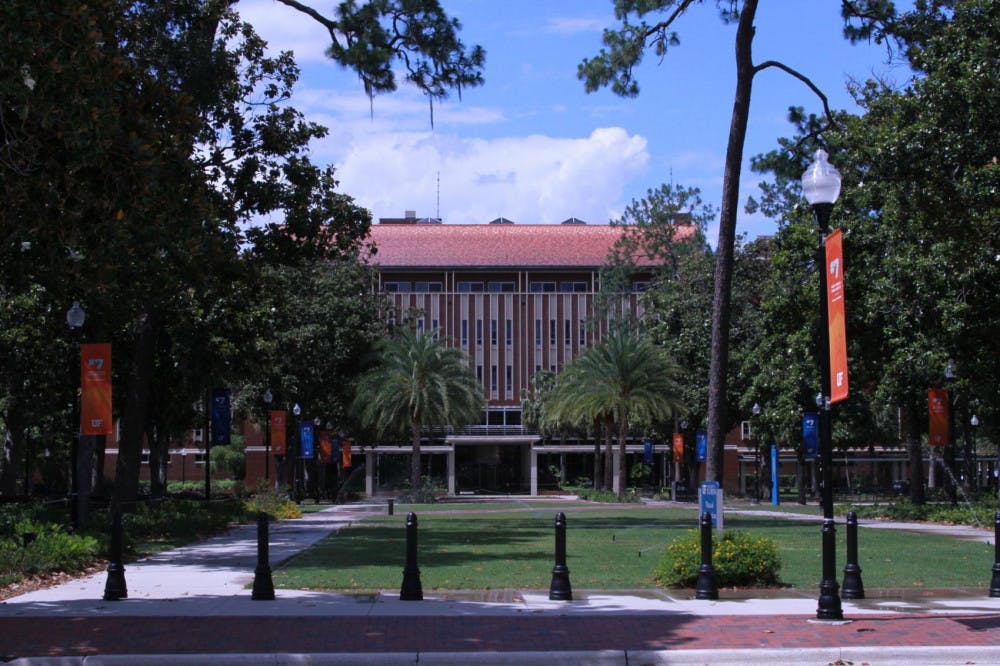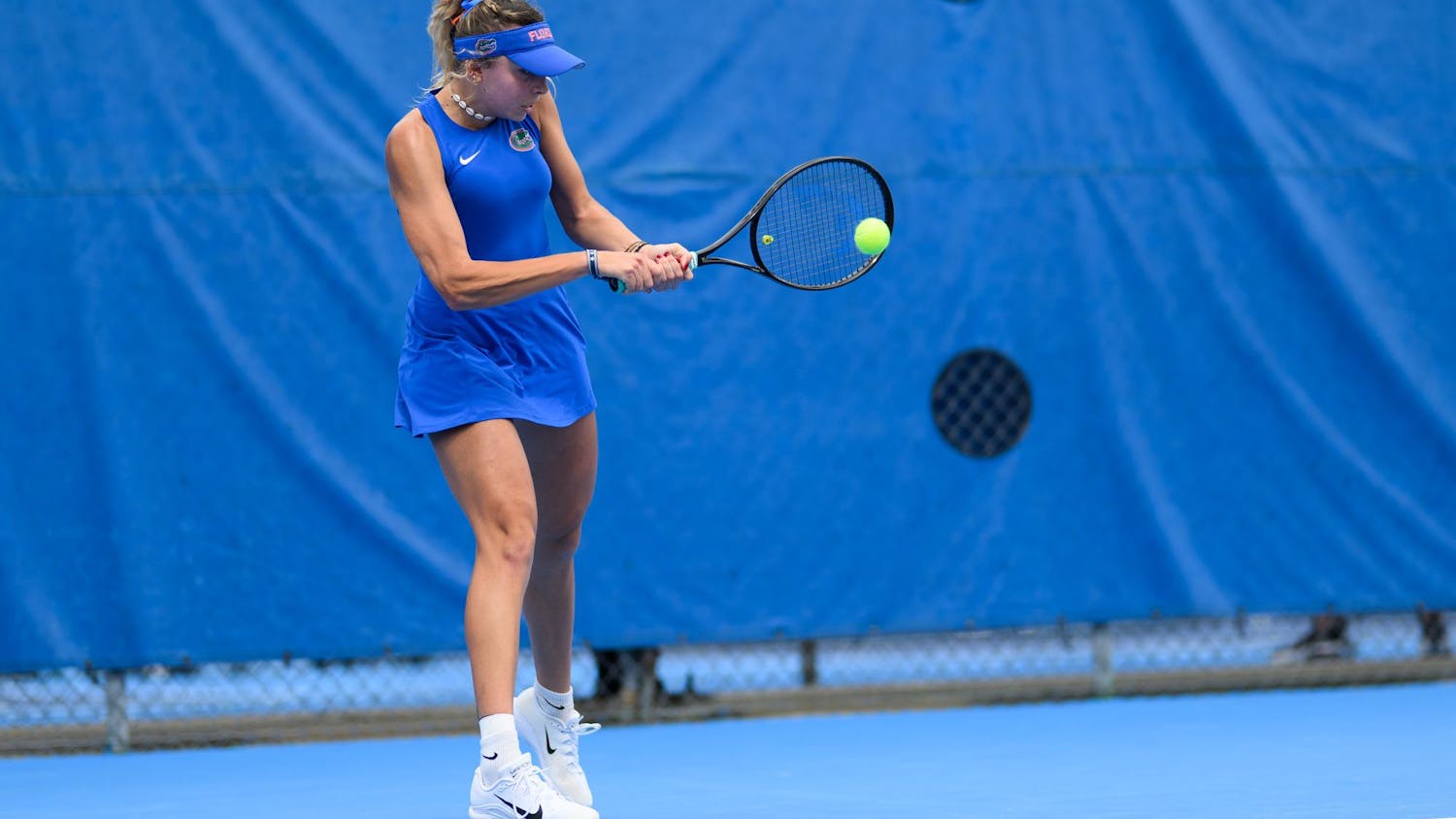The University of Florida is a massive university in the academic sense.
It has 16 colleges, 123 master’s degree programs and almost 100 majors to choose from, from chemistry to horticulture.
Whether someone’s major has them predominantly working in the stock room or in the garden, one economic engine helps drive it all.
It’s a motor that runs on just 12 games a year, with only about half of them in Gainesville.
It’s the Gators football team.
According to the 2019-20 budget from the University Athletic Association (UAA), the non-profit corporation that controls UF athletics, 59 percent of its revenue comes from football. The next closest sport is men’s basketball at eight percent.
It is because of this astonishing number that many are nervously waiting to see what changes are made to the season due to the COVID-19 pandemic.
On July 30, the SEC announced its plans for a 10-game, conference-only schedule starting on Sept. 26. While this announcement was a step in the right direction for the possibility of action on the gridiron this fall, it still leaves many unanswered questions — such as how many, if any, fans will be allowed in the Swamp. There also remains the chance the season still gets canceled or postponed if the pandemic grows worse.
Roger Blair, Ph.D., a professor in UF’s economics department that specializes in sports economics, said that the football program brings in about $100 million to the university.
The budget for the UAA in the 2019-20 academic year was $140.9 million. Blair estimates that the budget for the College of Liberal Arts and Sciences (CLAS) is about the same. However, CLAS, which has over 20 departments, is expected to see its budget cut not only because of the loss of football, but also by the state of Florida due to the pandemic, according to Blair.
“The state doesn’t have the tax revenues because of the virus,” he said.
Amanda Phalin, Ph.D., a lecturer in UF’s Warrington College of Business, said she expects UF to handle this lost income by initially taking subtle actions like putting off raises and making fewer hires to adapt to the financial strain the university will be under as a result of the pandemic and an altered football season.
“I think it’s going to be—at the beginning—it’ll probably be less about cuts and more about reducing additions,” Phalin said.
Blair, meanwhile, said he doesn’t see many ways the university can make up for the vanished earnings.
“So much, if you think about the university, is tied up in fixed costs,” he said. “Think about the salaries for all the faculty and staff and whatnot. You know those things. There is nothing much you can do about that unless you're going to fire people.”
One step Blair thinks the university could take if it loses all these returns would certainly be a radical step, but he finds it necessary.
“My personal opinion is the university should not send money to the athletic association,” he said.
He added that the university may not even have a choice in the matter, saying that UF wouldn’t even have enough money to pay UAA employees.
“Normally, the university has got some spare change, some uncommitted funds, but $100 million is a lot of money,” Blair said. “If you went to the dean of the College of Liberal Arts and Sciences and asked for 100 million bucks, it would be really tough.”
Blair did say that he expects the shortfall to not quite be $100 million because the UAA still expects donations from boosters and others, along with other revenue sources. However, he still thinks it wouldn’t be wise to send money to the UAA from the academic side of the university.
He said he is not aware of exactly how much money would need to be cut from the UAA since no one knows how much UAA employees make.
“If you are a faculty member, you are an employee of the state,” he said. “If you want to know what anybody makes you can find out. The information is public because we're public employees. You can’t find that with the salaries of the people that work for the athletic association because they are not public employees.”
As mentioned previously, the UAA is a private non-profit organization. Blair said it operates almost entirely under its own umbrella, despite still reporting to the university.
“They (the UAA) have their own organizational chart where the athletic director is where Fuchs is, and he (Scott Stricklin) has got people who work for him,” he said. “So where is it all connected? It’s connected in that the athletic director still reports directly to President Fuchs.”
Scott Galloway, a professor of marketing at NYU’s Stern School of Business, created a database evaluating how various colleges will fare after the virus’s effects are fully realized.
Based on each university’s value and vulnerability, 436 schools were sorted into four categories: Thrive, Survive, Struggle and Perish.
According to the accompanying blog post Galloway made regarding the database, colleges in the “Thrive” category have big, household names and “strong value,” which could allow them to come out of the pandemic stronger than they’d been before. “Survive” schools will likely see less revenue and decreased demand this year, but can get by with a little help from brand recognition and possibly a boost from endowments.
Of the 13 SEC schools listed in Galloway’s database, six of them fall into the “Survive” category, another six of them are listed as “Thrive” institutions and one is labeled as a “Struggle” institution (Vanderbilt). UF is among the “surviving” schools. Across northern state lines, rival Louisiana State University headlines the “thriving” universities in the southeast. Florida State University—who as of last week will not welcome the Gators into Doak Campbell Stadium this season—was also labeled a “surviving” school.
On the other hand, Stanford University, a school that has seen 11 varsity sports teams cut during this offseason, was placed in the “Thrive” category of Galloway’s study.
University Director of Communications Brittany Wise and university Director of Issues Management and Crisis Communication Hessy Fernandez did not respond to the Alligator’s request for comment about the impact the university could face or the information in Galloway’s chart.
When asked if she could anticipate how far and how long the pandemic would have to push UF before it’d have to consider making cuts, Phalin explained that the uniqueness of the situation prevented her from doing so.
“I think one of the most difficult things about this unprecedented pandemic is the high level of uncertainty,” Phalin said. “Recessions are bad. But, with the financial crisis, at least we knew where we were.”
Similarly to Phalin, Blair said he could not give an answer on whether the economic impact would be greater on the city of Gainesville or UF since we have never seen something of this magnitude economically before.
However, Blair is optimistic that even if football and other sports are canceled or postponed this Fall, the economic impact won’t be a long-term one and won’t result in cutting sports, like other schools have had to do.
“If next fall turns out to be normal, so we have one disaster and then we resume everything,” he said. “It might not have a significant long-term impact.”
Follow Noah and Payton on Twitter @Noah_ram1 and @petitus25. Contact them at nram@alligator.org and ptitus@alligator.org

Noah is a third year journalism-sports and media student from Palm Beach Gardens, Florida. He has been with The Alligator since Spring 2019 and has covered men’s and women’s tennis, gymnastics and volleyball. When he isn’t on his beat, Noah is usually sadden over his beloved South Florida sports teams, such as the Heat and Dolphins.






